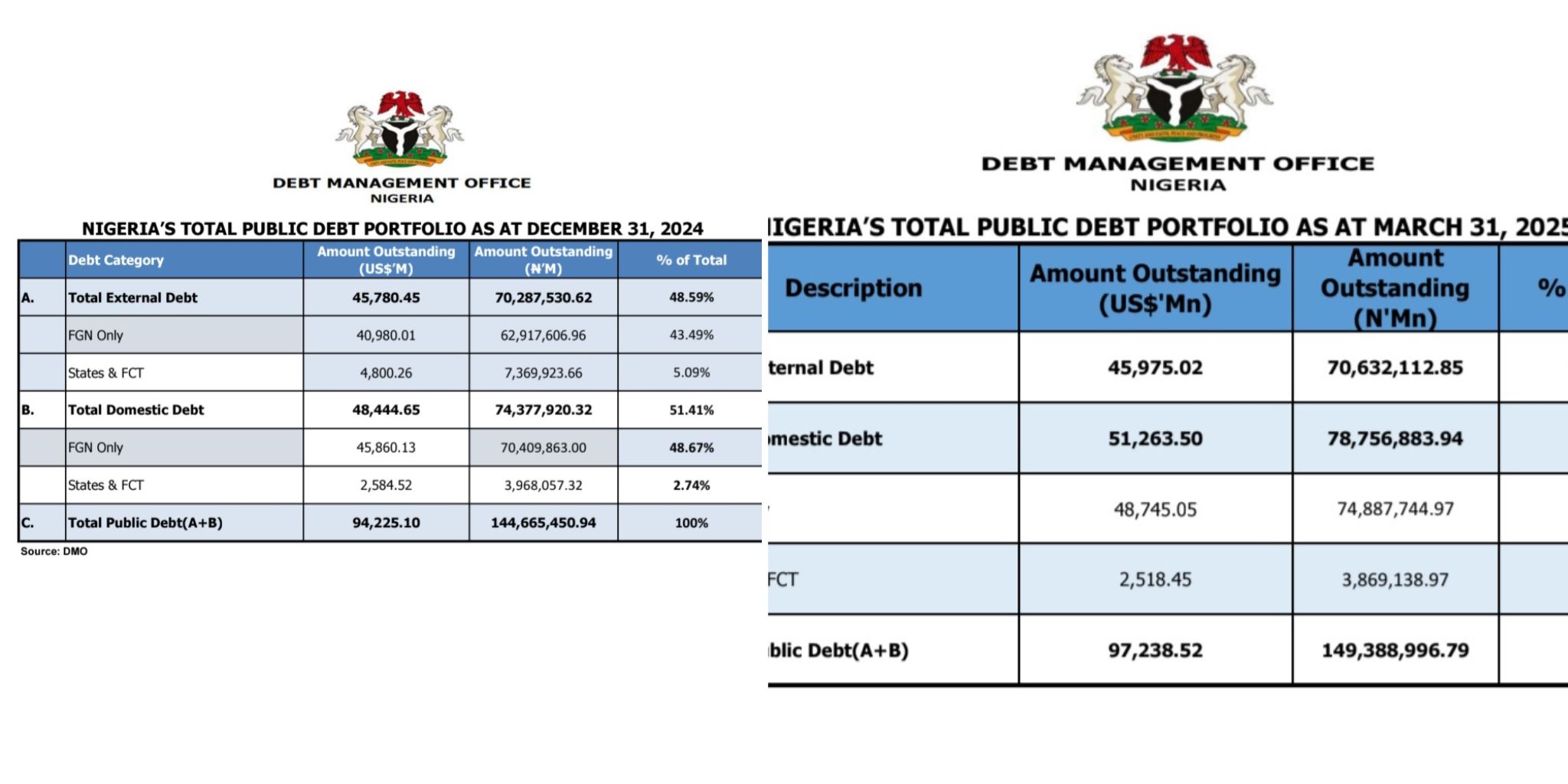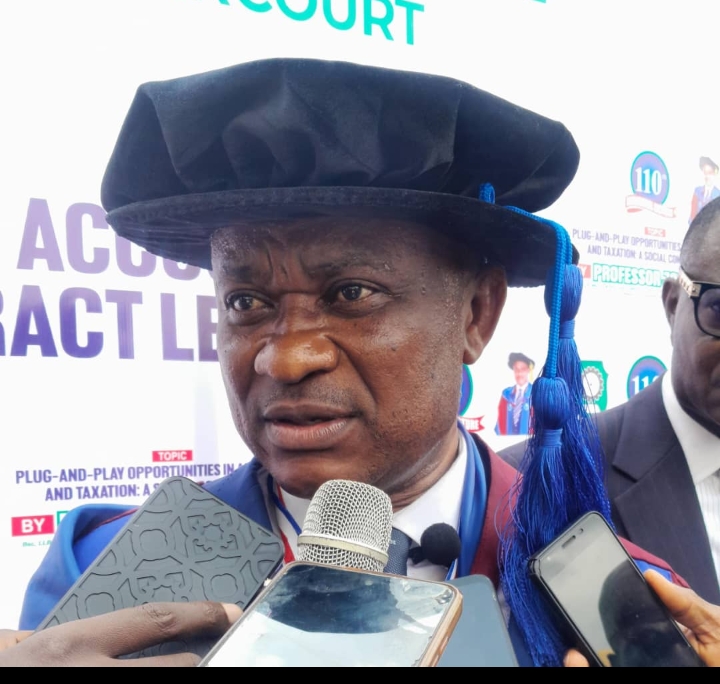Nigeria’s Public Debt Climbs to Unprecedented ₦149.3 Trillion Under Tinubu’s Watch
Nigeria’s total public debt has soared to an all-time high of ₦149.3 trillion as of March 31, 2025, marking a significant jump from the ₦144.6 trillion recorded at the end of December 2024. This is according to a fresh analysis of figures obtained from the Debt Management Office (DMO).
The review reveals that the domestic component of the debt rose by ₦4.4 trillion within the first quarter of 2025 moving from ₦74.3 trillion in December 2024 to ₦78.7 trillion by March 2025.
On the external front, the country’s foreign debt rose slightly by ₦350 billion during the same period, reaching ₦70.63 trillion from ₦70.28 trillion recorded three months earlier.
Despite repeated commitments by President Bola Tinubu’s administration to reduce borrowing, Nigeria’s debt stock has continued to grow steadily. For comparison, the national debt stood at ₦142 trillion in September 2024 and rose to ₦144.6 trillion by December. Back in June 2024, the figure was ₦134.2 trillion.
A deeper dive into the data for September 2024 showed that the Federal Government was responsible for ₦69.2 trillion in domestic debt, while state governments and the Federal Capital Territory owed ₦4.2 trillion.
This pattern indicates Nigeria’s increasing reliance on domestic borrowing to finance its obligations. The domestic share of the debt consistently makes up the larger portion of the total, with the Federal Government continuing to dominate borrowing activities.
These figures present a stark contrast to earlier policy promises made by the Tinubu-led government. In August 2023, during the inauguration of the Presidential Committee on Tax Reforms, President Tinubu pledged to end Nigeria’s overdependence on debt-driven public financing.
A statement published by the State House at the time quoted the President as saying:
President Bola Tinubu in Abuja expressed his resolute commitment to break the vicious cycle of overreliance on borrowing for public spending, and the resulting burden of debt servicing it places on the management of Nigeria’s limited government revenues.
The growing debt burden has sparked renewed concerns among economic analysts and citizens alike, especially as the country grapples with high inflation, rising cost of living, and a depreciating naira. Many worry that continued borrowing without substantial revenue reform may further strain Nigeria’s fiscal sustainability.
As of now, there has been no official response from the presidency or the DMO regarding the implications of this debt surge.





